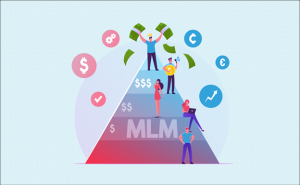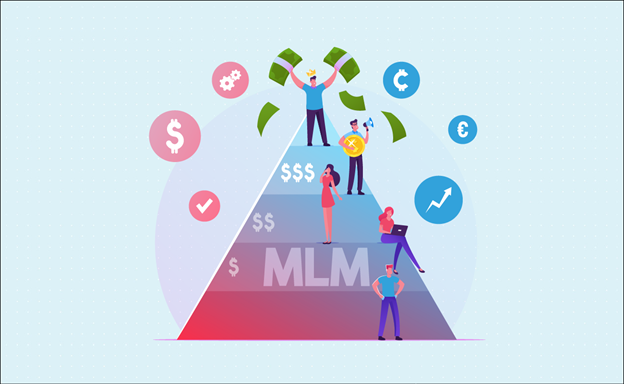Multi-Level Marketing: If It Sounds Too Good to Be True, It Probably Is
By Kassidy Kelly
Business Fashion Writer
It is not uncommon for young girls with a decent following on Instagram to receive direct messages from strangers hoping to interest you in joining their business. In exchange, you become a “boss babe.” Often, these messages on various social media platforms do not even disclose the name of the business. These little indications are one of the many red flags multi-level marketing companies use that all social media users should be aware of.
Multi-level marketing (MLM) is when a company is built around the use of brand representatives to sell products or services to consumers through network marketing. Where consumers would usually purchase goods online or at a physical storefront, MLMs uses these independent representatives to buy up inventory and sell the product to people through social media. However, in MLM, success is not just measured by sales, but mainly by how many people a representative can recruit to become a brand rep. These representatives are usually categorized into teams according to the region and report to their “upline,” or the head recruiters. The head reporters position titles can also be “coach” or “sponsor.” As the “downline” expands through recruitment, the upline gets richer since they are earning a percentage of their recruits’ sales. The more reps one recruit, the more they get paid.

This organizational pattern resembles much of a pyramid, where the term pyramid-scheme comes into play. Pyramid schemes are illegal in the United States because they sell an idea; no real, tangible product is ever sold in a pyramid scheme. MLMs, though historically are investigated for fraudulent ventures, can remain running in the United States since real products or services are being purchased. Nonetheless, the company still runs on the same recruitment practices of long-debunked Ponzi schemes.
The Anti-MLM Coalition published an alphabetically organized ongoing master list of every MLM business both past and present. A majority of the MLMs listed sell either women’s apparel, an array of beauty products, weight loss programs, or a combination of lifestyle products and services with outrageous success claims. These brands overwhelmingly target a female demographic, and reps are trained to play up mission statements of female empowerment disguised to further their recruitment strategies.
Instead of using a professional account, a major tool brand representative use to sell and recruit members are their personal Instagram platforms. MLMs such as Monat, Beachbody, and LuLaRoe use aggressive sales tactics on the app. These companies create long daily posts and stories about their products, begging viewers to join their team. These posts usually include the illusion of a potential lifestyle full of sisterhood, financial freedom, VIP parties, and even a chance at owning a free luxury car.
Not to say that some independent representatives have not seen success with their MLM business, but an article from the Federal Trade Commission informs interested consumers that “most people who join legitimate MLMs make little or no money,” and “some also end up deeply in debt.” If ever approached with an opportunity that requires you to make a large purchase to join, you may want to rethink the offer.
Contact Kassidy at kellykas@shu.edu


This article was very informative! The writer did a good job of engaging the audience, as well as providing useful information. Looking forward to reading more from her!